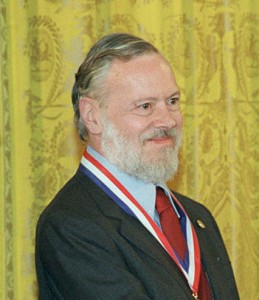This article is also available in Macedonian
- на македонски на Блогерај: Црна пропаганда: Пример за градење омраза кон Сорос
- на македонски на Блогспот: Црна пропаганда: Пример за градење омраза кон Сорос
On July 11, 2011, people who follow the media and social networks' activity in Macedonia witnessed a discussion incited by the mini-campaign to taint the American businessman and philanthropist George Soros. Several media distributed a "news item" based on two lies:
- that the respectable newspaper Wall Street Journal published an article about Soros
- the quoted content of the "news" alleged that Soros sponsored the Kosovo War, had ties with the KLA and is now rewarded by opportunities to invest in some profitable mines there.
Again, as in the case of
murder of Martin Neshkovski, the first line of defense against deception were the Twitter users. JankoL
tweeted a comparison [mk] between the article in the online edition of
Dnevnik daily and the original quoted text, which is clearly not from the Wall Street Journal newspaper, but is some sort of
comment by a reader with a Serbian name and surname from their forum.
I personally do not find the scandalous claims of this comment credible, because I know that Soros does not invest in countries where his foundations are active. Foundations that advocate the principles of open society, and oppose the principles of violence and war profiteering. Moreover, if a man of such a stature has been in any way involved in financing military operations more than a decade ago, something more substantial would have been revealed by now. It would have been a scandal of global proportions - an opportunity too good to miss for any of his many enemies, some of whom are media moguls.
All in all, it is clear that this is a disinformation aimed at domestic audience in Macedonia. It is useful to examine its spread, because people usually take for granted data from the media, and might think twice if they are aware of how information spreads and helps them form
their opinions. It can be expected that, as in other cases, in a while public discussion participants would use this item as a reference or an argument.
The disinformation was first published by the
Government-owned news agency MIA. News agencies function as services that distribute news to other media--their subscribers--like newspapers, television and radio stations. They mainly transmit short fact-based reports about events covered by their reporters, such as press conferences and statements by officials. If in this case there was no evil intent, then this is a case of gross incompetence, as the news item has not passed basic journalistic validity check. It equates an article in a well-known newspaper (abusing the credibility of that brand) with a comment by a de facto anonymous reader on a forum.

During the afternoon of July 11, several media relayed the disinformation. I have no information whether this was done through some top-down command, or they simply used what was sent by an agency they thought they can trust. Each of the media from the following time-line might have their own reasons...:
- 13:35 MIA
- 13.54 SITEL
- 14.10 Kurir
- 15:06 Dnevik on-line
- 15:49 MTV - Macedonian Televison (public service)
- ~ 17:00 PlusInfo – the article was soon removed, probably they've read it twice over, or did a check after the Twitter reactions
- MTV presented this item in the evening news too, and several other TV stations had it in a ticker
- July 12 (the next day) - the news did not appear in the paper editions of daily newspapers - maybe they figured that such an outright lie which can get them a slander suit
- 11:30 MK Fondovi website relayed the news, citing SITEL as an author.
Basic rule for any media would be to check any information they receive by consulting at least two independent sources, and to do everything possible within their powers to make sure it's accurate, before publishing. Imagine what would happen if journalists publish as news everything they hear or read, without checking - for instance some bloggers claim high political party officials are closeted homosexuals who promote homophobia in public to camouflage themselves, or that there are high commissions on the public works like the monuments - a money laundering schemes through cousins, that state offices are abused for personal gain... For a person to bear the title of journalist, and for a company to bear the title of professional media, they have to meet certain standards, related to the role in society media play, as protectors of democracy.
Let's assume there was no ill intent. Even without a despicable motive, these media acted unprofessionally. They did not check the information, they did not contact any other source (except MIA), they did not check the Wall Street Journal website where they would see that it is not an article but a reader comment, nor they have done the basic journalistic duty to seek comment by the persons and institutions mentioned in the article. On top of all this, they did not even inform that MIA was the source. All of them are unsigned, which by default means that the media claim authorship and responsibility for the news (in an ideal world).
AFAIK, none of the companies whose articles are linked above has published a retraction or an apology to the mentioned persons and institutions on account of (possibly unintentional) damage to their reputation, nor have they apologized to the readers for serving them a lie.
The issue is not whether any legal protection mechanism from defamation would be activated by the concerned parties. This is more about how these media build their relationships with their readers. Keywords: respect versus underestimation, truth versus mistrust.








 American Corner
American Corner









